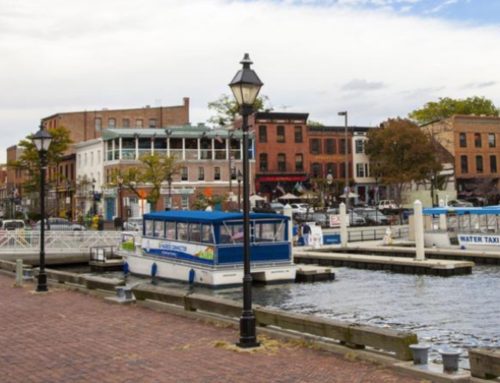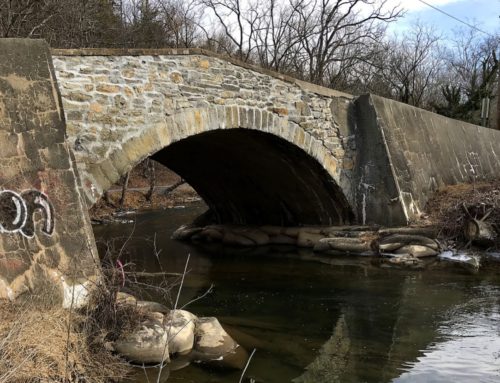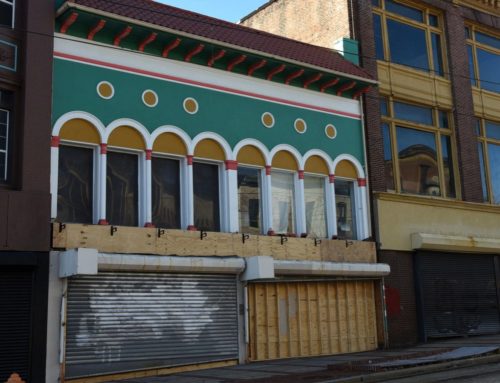Excerpt from Baltimore Sun:
A hearing to decide whether county officials should designate the Bosley Mansion in Towson a historic landmark has been postponed for the fifth time, as the owner waits to finalize the property’s sale to a pair of local developers.
Bosley Estates LLC, a partnership of Martin Azola and Delbert Adams, is set to purchase the roughly 4.4 acre property from Presbyterian Home of Maryland for an undisclosed amount following a 90-day design period, Azola said last week.
The sale of the 19th-century mansion, which until spring 2016 housed a 22-bed assisted living facility in West Towson, and its surrounding grounds was announced May 24.
Presbyterian Home of Maryland officials have asked that a June 8 hearing before the Baltimore County Landmarks Preservation Commission be postponed until September to allow Bosley Estates LLC to take ownership and develop firmer rebuilding and preservation plans for the mansion before any decision is made on its historic status, Baltimore County spokeswoman Ellen Kobler said.
The Landmarks Preservation Commission approves the historic designation of properties and their settings, historic districts, exterior alterations to properties on the Baltimore County Landmarks List and all developments within county historic districts. Development on a property on the Baltimore County Landmarks List cannot move forward unless the commission approves it.
The Southland Hills Improvement Association sought to have the mansion and its historic setting added to the county’s list of historic landmarks to prevent the mansion’s demolition after Presbyterian Home officials announced plans last spring to close the assisted living center that had operated on the property since 1929 and sell the house and grounds.
The Southland Hills community borders the property, and its neighbors have used the grounds as a park.
The Preservation Alliance of Baltimore County, a nonprofit that assists property owners and community groups in preparing nominations to the Baltimore County Landmarks List, supported the group. However, previous hearings before the landmark commission on the mansion’s status were delayed while the owners waited to close an original contract of sale to Towson-based developer Caves Valley Partners.
Caves Valley agreed to purchase the property in August 2016 with plans to redevelop the site and lease the mansion to Baltimore County for government offices. However in January, Caves Valley announced it was pulling out of the deal — which residents opposed, citing traffic concerns — within the negotiated study period outlined in the contract.
In a May 23 letter, Presbyterian Home president Susan Shea and board chair Joseph Slovick asked the Landmark Preservation Commission to postpone its June 8 meeting on the mansion due to the proposed sale to Bosley Estates LLC.
“The purchaser is working on plans for the property that would satisfy [Preservation Alliance of Baltimore County] and [Southland Hills Improvement Association’s] vision for this property, including a plan to preserve the Bosley Mansion,” the letter reads. “Having just executed the contract, the purchaser is unable to present its plan at the June 2017 hearing.”
Shea and Slovick declined to comment through a spokesperson.
Kate Knott, a member of the Save the Bosley Mansion committee of the Southland Hills Improvement Association, said in a statement that the association is looking forward to seeing the developer’s plan, which Azola said would include “some sort of residential use.”
Azola’s 2016 bid to purchase the property included a 40-unit condominium project, which he says would need a planned unit development, commonly known as a PUD, to move forward. The property is presently zoned for 24 residential units.
A PUD, which must be submitted by the council member in whose district the project is proposed to be located, is a county regulatory process that allows applicants to develop a property outside of its typical zoning use if it will achieve “substantially, higher-quality development than a conventional development” or provide a public benefit.
Azola said he’s heard the PUD application process will take about a year, after which his company will settle on the property and begin about 18 months of construction.
“The preservation of the mansion and the green space are the two hot buttons with the community,” Azola said. “We’re working with them on both of those, but when you stir all of this up, it’s the PUD that takes into account what we want, what they want and what zoning, easements and setback can handle.
Baltimore County Councilman David Marks, a Republican who represents Towson, would be responsible for introducing the PUD. The process has been a key part of the discussion between his office, neighbors and the developers, Marks said.
Southland Hills neighbors use the senior living center’s lawn as an unofficial community gathering space, something Marks said is key to moving the project forward as well as preserving as much of the original mansion as possible.
“Marty Azola has a history of engaging neighborhoods so I’m optimistic that he can come to a consensus [with the community] on what can be protected,” Marks said, adding that Azola has already organized additional community meetings to gather input before creating a development plan.
Baltimore-based Azola has a history of reusing historic buildings.
A company created by Azola to oversee the renovation of the 160-year-old Old Towson Jail, on Bosley Avenue and Towsontown Boulevard, was among 14 projects statewide to receive 2012 recognition by the Maryland Historical Trust for its preservation work.
Azola said he spearheaded the effort to get the building, now named Bosley Hall, listed on the National Register of Historic Places. The property was turned into office suites and opened in February 2011.
More recently, Azola’s companies produced the Ivy Hotel in Baltimore City’s Mount Vernon neighborhood. The boutique hotel completed in 2015 is a reuse of a 19th-century mansion and two adjacent rowhouses previously used as a hotel and an inn.
“We will never do an unpopular project,” Azola said. “Had the neighborhood been coming out with pitchforks and axes at me, I’d have thrown the towel in long ago, but I think what we intend to do is what everyone will be comfortable with.”
Azola said he is “into the thick of” brainstorming and exploring the property’s potential use, including how many units are needed, if an addition is needed and how best to preserve the front yard.
“It’s a time for everybody to have input and hopefully the work product is agreeable to everybody,” Azola said.



